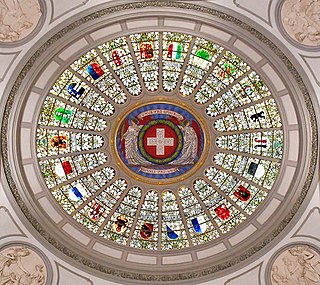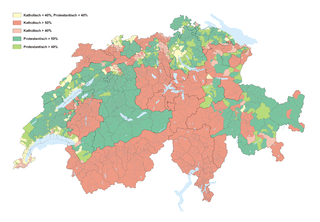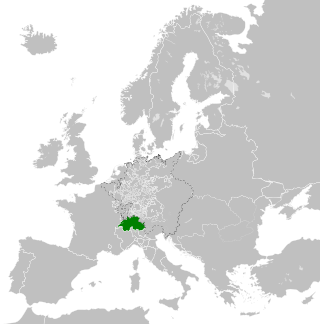
Switzerland, officially the Swiss Confederation, is a landlocked country located in west-central Europe. It is bordered by Italy to the south, France to the west, Germany to the north and Austria and Liechtenstein to the east. Switzerland is geographically divided among the Swiss Plateau, the Alps and the Jura; the Alps occupy the greater part of the territory, whereas most of the country's population of 9 million are concentrated on the plateau, which hosts its largest cities and economic centres, including Zurich, Geneva, and Basel.

Since 1848 the Swiss Confederation has been a federal republic of relatively autonomous cantons, some of which have a history of federation that goes back more than 700 years, putting them among the world's oldest surviving republics.

Switzerland has a dense network of roads and railways. The Swiss public transport network has a total length of 24,500 kilometres and has more than 2600 stations and stops.

Bern railway station serves the municipality of Bern, the federal city of Switzerland. Opened progressively between 1858 and 1860, and rebuilt several times since then, it lies on the Olten–Bern and the Lausanne–Bern lines and is near the end of the Lötschberg line. The station is owned by the Swiss Federal Railways (SBB CFF FFS). Train services to and from the station are operated by the Swiss Federal Railways, the Bern-Lötschberg-Simplon railway (BLS) and the metre gauge Regionalverkehr Bern-Solothurn (RBS). Trains calling at the station include ICEs, and international trains to Italy.

The Liberal Party of Switzerland or Swiss Liberal Party was a political party in Switzerland with economically liberal policies. It was known as a party of the upper class. On 1 January 2009 it merged with the larger Free Democratic Party (FDP/PRD) to form FDP.The Liberals.

Each of the 26 modern cantons of Switzerland has an official flag and a coat of arms. The history of development of these designs spans the 13th to the 20th centuries.
The Swiss Confederation comprises the 26 cantons of Switzerland.

The Protestant Church in Switzerland (PCS), formerly named Federation of Swiss Protestant Churches until 31 December 2019, is a federation of 25 member churches – 24 cantonal churches and the Evangelical-Methodist Church of Switzerland. The PCS is not a church in a theological understanding, because every member is independent with its own theological and formal organisation. It serves as a legal umbrella before the federal government and represents the church in international relations. Except for the Evangelical-Methodist Church, which covers all of Switzerland, the member churches are restricted to a certain territory.

Swiss Post is the national postal service of Switzerland. A public company owned by the Swiss Confederation, it is the country's second largest employer with about 54,000 employees. The group is based in Bern and has branches in 25 countries. Roberto Cirillo is its CEO since April 2019. In 2021, Swiss Post was ranked as the world's best by the Universal Postal Union for the fifth time in a row. In December 2022, it was announced Swiss Post has acquired the St. Gallen-based sustainable packaging company, Kickbag GmbH.

The Old Swiss Confederacy, also known as Switzerland or the Swiss Confederacy, was a loose confederation of independent small states, initially within the Holy Roman Empire. It is the precursor of the modern state of Switzerland.

Science and technology in Switzerland play an important role in the Swiss economy, which has very few natural resources that are available in the country. The Swiss National Science Foundation, mandated by the Federal government, is the most important institute for promoting scientific research.

The Swiss Central Railway was one of the five major private railway companies of Switzerland. The SCB with a track length of 332 kilometres was integrated into the Swiss Federal Railways (SBB) in 1902.
The construction and operation of Swiss railways during the 19th century was carried out by private railways. The first internal line was a 16 km line opened from Zürich to Baden in 1847. By 1860 railways connected western and northeastern Switzerland. The first Alpine railway to be opened was under the Gotthard Pass in 1882. A second alpine line was opened under the Simplon Pass in 1906.
There are 26 constituencies in Switzerland – one for each of the 26 cantons of Switzerland – for the election of the National Council and the Council of States.

Swiss Associates, also known as Associated Places,Zugewandte Orte, or Pays Alliés, were associate states of the Old Swiss Confederacy, with some form of alliance agreement with either the entire Confederation or individual cantons.













